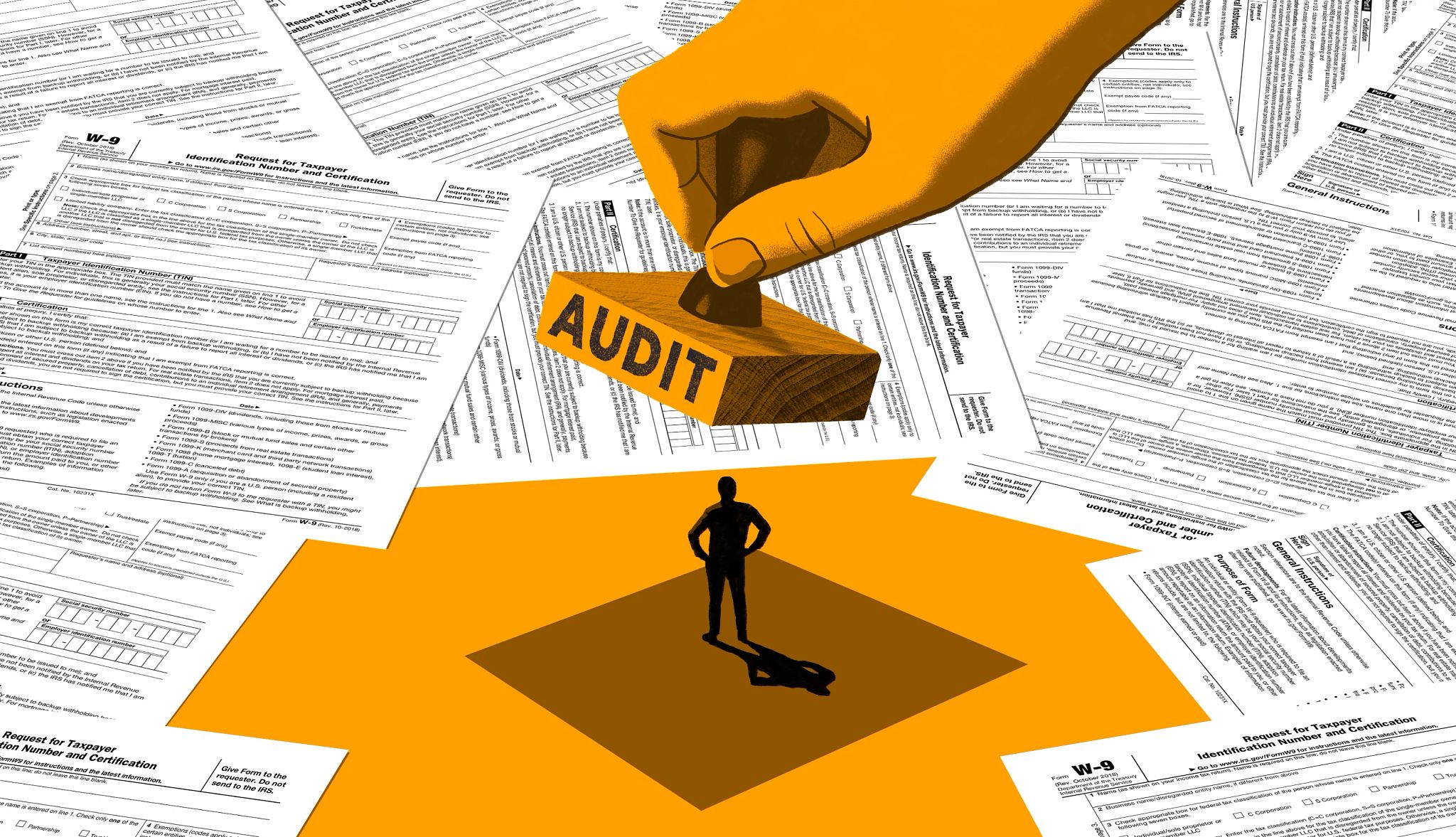AARP Hearing Center


Jump to the red flag
Making too much money • Failing to report taxable income • Math errors • Rounding or estimating dollar amounts • Claiming refundable credits • Taking unusually large deductions • Claiming credits you clearly don’t qualify for • Reporting business expenses • Deducting expenses for a hobby • Receiving or selling cryptocurrency
Whether it’s an impersonal exchange of forms and documents through the mail or a face-to-face grilling at an Internal Revenue Service office, nobody wants to go through an IRS audit. Just the thought of the tax agency picking your tax return apart can make you queasy. While some returns are selected randomly for an audit, one way to decrease your chances of facing this unpleasant experience is to avoid as many IRS audit red flags as possible.
All kinds of oddities on your tax return might draw unwanted attention from the IRS. In some cases, it’s simply a sloppy mistake on your part. However, it can also be something totally surprising and beyond your control, like claiming a certain tax break or the amount of income reported.
Although the list is potentially endless, here are 10 common audit red flags that can boost the chances of your tax return being pulled aside for a second look. There’s no guarantee you’ll escape an audit with this information in hand, but you might be able to use it to keep the odds in your favor. And if your return is selected for an audit, you might be more at ease knowing that it wasn’t your fault.
1. Making too much money
While it’s not a bad problem to have (since it means you’re rich), millionaires have a much greater chance of being audited. This is especially true today, thanks to additional IRS funding from the Inflation Reduction Act of 2022 that’s being used to increase enforcement actions against higher-income taxpayers.
To illustrate the point, let’s take a look at some statistics from the 2018 tax year (the most recent year for which the IRS has started all enforcement activities and issued data). The IRS audited only 0.3 percent of all personal income tax returns for the year. However, the audit rate jumped to 1.2 percent for people who reported between $1 million and $5 million of income — and it goes up from there. The tax agency audited 2.2 percent of returns reporting between $5 million and $10 million of income, while the audit rate surged to 9.2 percent for people reporting income exceeding $10 million.
That’s not to say that you should try to make less money each year. But if you’re extremely successful (or lucky) and earn a boatload of money, don’t be too shocked if the IRS decides to audit your return.
2. Failing to report taxable income
You’re practically inviting a response from the IRS if you don’t report all of your taxable income on your tax return. You know those W-2 and 1099 forms you get from employers and other people who pay you during the year? Well, the IRS gets a copy of those forms, too.
When you file your tax return, the IRS runs it through a cross-checking program to see if you reported all the income shown on the W-2 and 1099 forms the tax agency has with your name on it. If a mismatch is detected, you’ll get a letter in the mail from the IRS pointing out the discrepancy and asking you to follow additional procedures to clear up the matter. Although this technically isn’t considered a correspondence “audit” for purposes of the audit rate statistics, it can certainly feel like one … or lead to a full-blown audit if the IRS doesn’t trust your numbers.
You can do a couple of things to help prevent this situation from arising. First, wait until you receive all your W-2 and 1099 forms before filing your tax return. Employers and other payers aren’t required to get your W-2 and most 1099 forms to you until Jan. 31, and many people complete their returns before that date, which can be a mistake. Don’t jump the gun and file your taxes if you don’t have all your tax documents yet.
Second, if you don’t receive a W-2 or 1099 form that you’re expecting, or get an incorrect form, reach out to the employer or payer as soon as possible. If you already did that but still haven’t received the missing or corrected form, call the IRS at 800-829-1040 for assistance. Ultimately, you might have to estimate the W-2 or 1099 amounts to report using Form 4852.
3. Math errors
Math errors fall under the “stupid mistake” category. If you’re using tax software to complete your return, you probably don’t have to worry about math errors because the software will do the calculations for you. On the other hand, it’s very easy to mess up the calculations if you’re filing a paper return.
And regardless of whether they’re intentional, math errors can cause your return to be flagged for additional scrutiny. If the IRS finds a miscalculation, it will fix the error and send you a notice of any adjustments to your tax return. You’ll have 60 days to object to any increased tax liability.
The worst part is that you might have to wait a bit longer to receive a tax refund while the IRS pulls your return to fix the mistake.































































More From AARP
2024 IRS Tax Deadlines You Can’t Afford to Miss
Is Tax Day April 15 this year? When are estimated taxes due? Our IRS filing calendar has the answers
Boost Your Tax Return With the Earned Income Tax Credit
You can turn a tax bill into a tax refund
One Family's Fight For Lower Property Taxes
What they learned about tax breaks may help you
Recommended for You